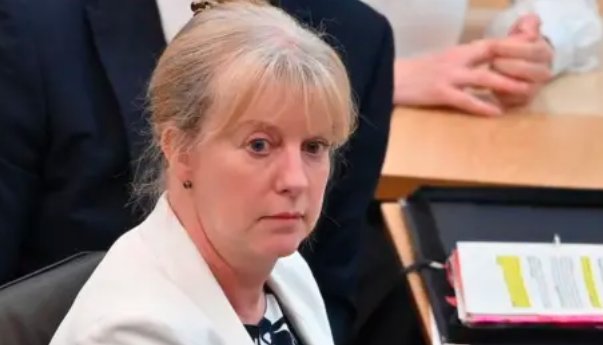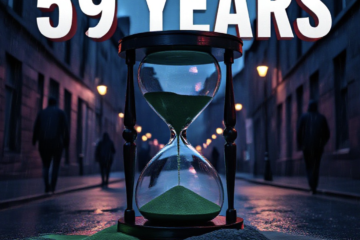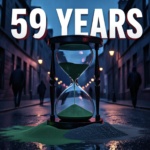Scotland’s Finance Secretary Shona Robison has warned that she might need to rethink a key promise not to increase income tax rates before the next Holyrood election in 2026. This comes as she braces for a potential one billion pound shortfall in funding from the UK government due to Chancellor Rachel Reeves’ decisions in the upcoming Budget on November 26, 2025.
Robison described the scenario as a nightmare for Scottish finances, where changes to UK wide taxes could hit devolved budgets hard. She has called for an urgent meeting with UK officials to clarify the impacts and protect Scotland’s public services.
The Original Pledge and Its Challenges
Shona Robison made the no tax rise commitment earlier this year as part of the Scottish National Party’s strategy to stabilize household finances ahead of the election. At the time, it aimed to ease pressures on workers already facing higher Scottish income tax bands compared to the rest of the UK.
This pledge now hangs in the balance because of how fiscal transfers work between Westminster and Holyrood. Scotland receives a block grant adjusted for differences in tax policies, so any UK tax changes could reduce that amount without directly affecting Scottish taxpayers.
Experts point out that Scotland’s progressive tax system has raised extra revenue in the past, helping fund services like education and health. For instance, higher rates brought in about one point four billion pounds more than UK levels would have in recent years. Yet, with public spending demands rising, the government faces tough choices.

UK Budget Moves and Scotland’s Funding Hit
Chancellor Rachel Reeves faces her own pressures to balance the UK books, with speculation growing that she will hike income tax rates while possibly lowering national insurance to soften the blow for low earners. Such a move could lead to a direct cut in Scotland’s block grant, estimated at up to one billion pounds for a two penny increase in the basic rate.
The Fraser of Allander Institute, a respected economic think tank, has crunched the numbers on this. Their analysis shows that even a modest UK tax rise would shrink the Scottish budget by nine hundred seventy two million pounds next year. This ripple effect stems from the fiscal framework agreed between the UK and Scottish governments, which ties funding to UK policy shifts.
Robison stressed that Scotland has limited tools to respond, given its devolved powers over income tax but reliance on Westminster for overall funding. She urged the UK to consider the devolved nations in its planning to avoid unfair burdens.
| Potential UK Tax Change | Estimated Impact on Scottish Budget (2026) | Source of Adjustment |
|---|---|---|
| 1p rise in basic rate (20%) | £486 million cut | Block grant reduction via fiscal framework |
| 2p rise in basic rate (20%) | £972 million cut | Block grant reduction via fiscal framework |
| Cut in national insurance by 2p | Partial offset, but net £800 million loss | Combined tax policy adjustments |
| No change in income tax | Neutral, maintains current £41.5 billion block grant | Baseline funding level |
This table highlights how sensitive Scotland’s finances are to UK decisions, based on recent economic modeling.
Political Reactions Across the Spectrum
Opposition parties in Scotland have seized on Robison’s comments, accusing the SNP of poor planning. Scottish Labour leaders argue that the government should focus on efficiency rather than potential tax hikes, pointing to recent underspending of one billion pounds in the last fiscal year.
On social media and public forums, debates rage about the fairness of the system. Many users express frustration over Scotland’s higher taxes already, with calls for greater fiscal autonomy or even independence to control revenues fully. Pro independence voices see this as proof of Westminster’s dominance over Scottish priorities.
Unionist groups counter that the UK’s recent funding settlements have been generous, providing twenty percent more per head than England. They warn that revisiting the pledge could drive high earners away, echoing past concerns when tax rises led to consultant shortages in the NHS.
Robison defended the progressive approach, noting it has kept one hundred thousand children out of poverty through targeted spending. She called for the UK to tax the wealthiest more to close gaps, rather than shifting burdens to devolved budgets.
- Key concerns from business leaders: Higher taxes could slow economic growth in sectors like finance and tech in Edinburgh.
- Public service impacts: Potential cuts to NHS waiting times or school funding if the shortfall materializes.
- Election angle: This issue could sway voters in 2026, with polls showing mixed views on tax fairness.
Broader Implications for Scottish Households
For everyday Scots, the stakes are high. Those earning over seventy five thousand pounds already pay forty five percent on income up to one hundred twenty five thousand, the highest in the UK. A revisit to the pledge might mean further bands or rate tweaks, adding to household costs amid inflation.
Recent events, like the delayed UK Autumn Budget earlier this year, have already forced last minute tweaks to Scottish spending plans. This uncertainty affects everything from council services to green energy projects, where Scotland leads in renewables but needs stable funds.
Economists reason that while short term pain might fund long term gains, like better infrastructure, the real solution lies in fairer UK wide reforms. Scotland’s larger public sector, at twenty five percent of the workforce versus England’s, amplifies these pressures, as noted in fiscal reports.
Residents worry about practical effects, such as rising council tax or delayed repairs. One recent survey showed sixty percent of Scots favor protecting services over tax cuts, but only if the wealthy contribute more.
Looking Ahead to the November Budget
As the UK Budget approaches on November 26, all eyes will be on how Reeves balances growth with fiscal responsibility. Robison’s push for dialogue highlights the need for cooperation, but tensions remain over devolution’s limits.
This situation ties into wider trends, like the UK’s push for clean energy, where Scotland could gain from hydrogen projects but risks funding shortfalls. Logical steps forward include scenario planning by Holyrood to mitigate risks, perhaps through efficiency drives or targeted savings.
In the end, the decision will shape Scotland’s path to 2026. Stay informed on these developments, as they directly impact your wallet and services. Share your thoughts in the comments below and help spread awareness about Scottish finances.


















